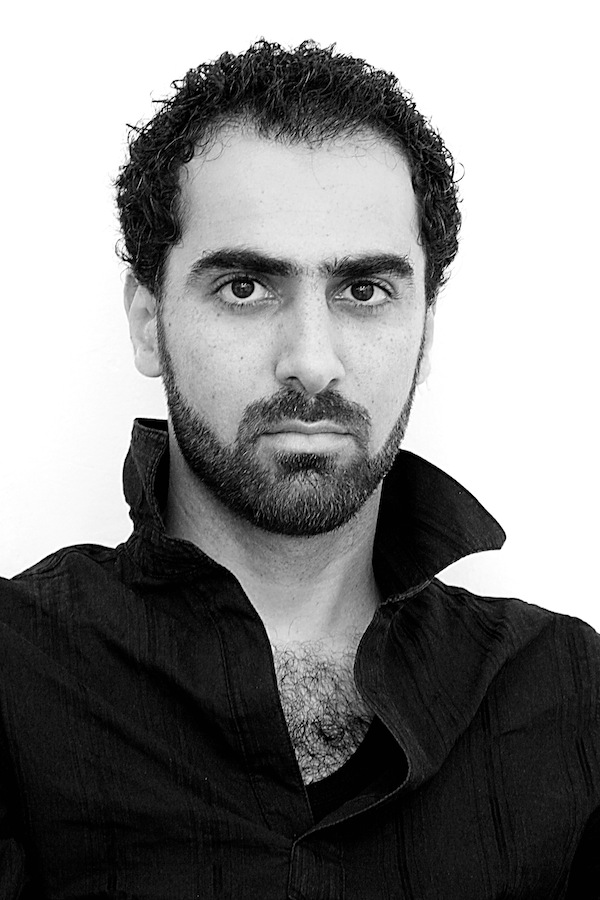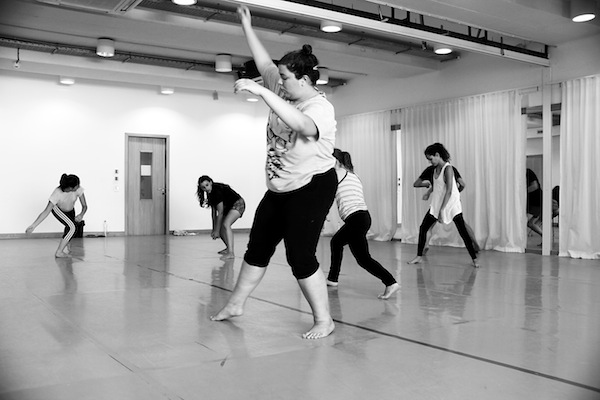This October, Istanbul will host A Corner in the World, a new international performing arts festival. A Corner in the World is a unique initiative that brings together innovative works of performance art and will display original theater, dance and music performances by artists from Turkey, the Balkans, the Caucasus and the Middle East. These artists and companies will work with Istanbul-based performers and present performances to the public.
One such artist is Vahid Evazzadeh, an award-winning Iranian theater director and filmmaker, and the founder of The Counter Institute, an arts and culture organization that aims to produce artistic projects and facilitate cultural activities that are innovative, relevant and experimental both artistically and production-wise. He is based in Denmark, where he studied with the prestigious Odin Teatret and other masters of theater like Eugenio Barba and Augusto Boal. He now directs international projects and trains dance and theater performers all around the world with The Counter Institute.
As part of A Corner in the World festival, he will lead a unique workshop and residency with Turkish and international performers at ÇATI Çağdaş Dans Sanatçıları Derneği from Friday, September 30 to Saturday, October 28, 2015.
Yabangee spoke to Vahid about his experience and why he chose Istanbul to lead such a work.

Vahid, you are set to lead a workshop and a residency in Istanbul in October 2015. Why did you choose Istanbul as a city to work in?
Of course Istanbul is an amazing place. I visited the city a year ago for the first time and I have already been back four times since then. When I am in Istanbul I feel five centimeters taller! That’s that. But there are also two other critical reasons that made me want to come back to Istanbul and also to take part in A Corner in The World festival.
The first reason is that I have been very involved in the Middle Eastern art scene in the last few years both for my own personal interest and also due to my work with the Roberto Cimetta Fund. I think a deeper and stronger cultural, artistic and intellectual relationship among Middle Eastern countries is a must. We have to learn from and about each other, and surpass the political barriers that colonial and national vested interests have imposed on us. Istanbul is one of the most vital cities in the Middle East and also one of the few that is relatively tolerant to alternatives. A Corner in The World is bringing together artists from all over the region, and this is an invaluable opportunity to meet them. I couldn’t not be there!
On the other hand I am fascinated with the cultural landscape of certain non-Western societies. There is something vibrant, but not yet fully materialized under the skin of the city that many people are anticipating, though they can’t seem to be able to articulate what exactly it is going to be. I feel that something is crystallizing in Istanbul. Everyone is expectant of something unknown, but promising. So I am very excited to work in Istanbul because I think something real is happening in this city. I want to be a part of it.
You are a theater director and filmmaker. What led you to the performing arts?
When I was a kid, I was extremely dissatisfied with my condition and my surroundings through and through, and figured that I wanted to become an artist. While studying in an acting school in Iran, I learned that I, in fact, wanted to become a director. I started directing a few performances and eventually premiered at the Tehran City Theater. I also directed a short film, which was screened at a few festivals. In the last four years of my time in Iran I established a theater group that focused on experimentation. From that point onward I concentrated on various aspects of the craftsmanship of performing arts which are still my main preoccupations today.
My motivations for wanting to become an artist and an intellectual have changed over the years, but the desire to feel the direct impact of my work on my own life and the lives of others has always remained.
You’ve done a significant amount of research on the theater reformers of the 20th century, such as Grotowski, Stanislavsky and Boal. What particularly interested you in their approach, and how did they inspire you?
When I started looking at theater seriously, I quickly realized that I did not have access to useful resources. The only thing I had was a three-volume translation of Stanislavsky’s writings. Reading them left an enormous mark on my understanding of theater. Unfortunately very few translations of works of modern theater or books were available, so I shifted my focus to Iranian traditional performances and some of the Asian traditional performances such as Noh and Kathakali, work that I could actually see.
When I went to Odin Teatret, my interest and curiosity concerning the experiments of the 20th century was reinvigorated. It took me a long time, though, to develop my own way of working based on what I learned from others. Going back to Stanislavsky and Grotowski, as well as meeting and studying with Eugenio Barba and Augusto Boal were the guiding light in this endeavor of personalizing what I had learned. I’ve read very deeply all that Stanislavsky and Grotowski wrote themselves, and I observed very closely the vigorous craftsmanship and professional responsibility of Boal and Barba, and their focus on the transgressive and transformative power of theater. I also learned from my interactions with Augusto Boal that I do not have to be embarrassed for having a political opinion as an artist and a citizen. From that point on, my work became very much colored by the socio-political reality of our world.

You launched the HamletZar project and created The Counter Institute. Why and how did you decide to found these two endeavors?
I do believe that learning is a social process. Nevertheless, a certain depth can only be achieved through individual practice; it cannot otherwise be taught. In 2006 I started a new, personalized process in order to elaborate a ‘method’ that was my own. Later on, the HamletZar project served as a platform for the development of this method – a gradual and collective process of experimentation and exploration into the craftsmanship, organization and social relevance of performing arts. The company behind HamletZar was Goossun Art-illery. We closed that company in 2012, after which I started a period of reflection and study that allowed me to bring the experience of HamletZar together with what I was looking to do in the future.
The Counter Institute is the result of that period of reflection and study: an organization that produces cultural projects that are relevant to the reality of the world, and are created through innovative production plans that are compatible with that reality.
Could you explain a bit about the workshop you’re leading at A Corner in The World? You are going to focus on “The Maids” project during the residency. Why does it resonate particularly in Istanbul?
Over the last few years I have devised a number of workshops that present different aspects of my methodology, which I today call ‘Formative Theater’. The most fundamental and recurring workshop is the one I am presenting in Istanbul: Pre-expressivity and Scenic Presence.
“The Maids” is the first major performance project of The Counter Institute that builds on the experience of HamletZar and takes it a step further. It is being simultaneously produced in Beijing, Istanbul, Stockholm and Copenhagen. In each city a new team of performers are selected through the workshop. They will make a new version of the performance, which is informed and influenced by the citizens of each city through fieldwork. In other words, we are going to make adaptations of Jean Genet’s work which are relevant to the context of each of these cities.
I am not going to ‘stage’ Genet’s play nor use much of the text of the play. What I have taken from Genet’s The Maids is merely its skeleton: the relationship between masters and slaves. I do believe the very essence of that relationship resonates with all people around the world. But how it resonates, particularly in Istanbul, is something that I will discover by the end of project. The whole idea of communal engagement in Formative Theater is based on this idea, namely that we the artists do not second-guess the audience and assume that what we think is interesting, is relevant for them too; we want them to make that decision with us, during the process, time and again. That is one crucial aspect of pre-formance: it keeps evolving in a dialogue between the artists and the spectators.
For more information about the workshop and the residency, you can visit the Facebook event.
For more information about A Corner in the World, you can visit their website and Facebook page.
Claire Zerhouni is a contributor to Yabangee.









